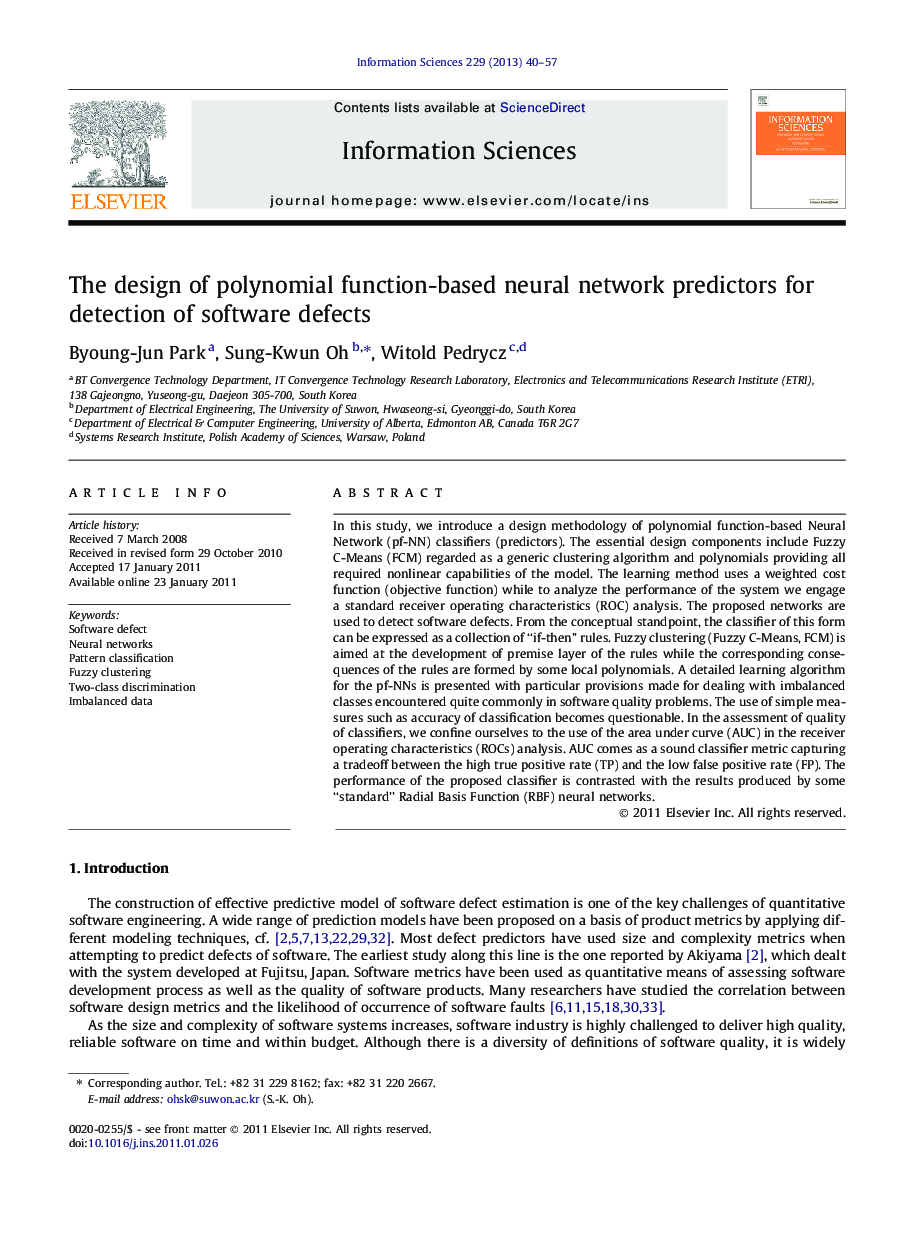| Article ID | Journal | Published Year | Pages | File Type |
|---|---|---|---|---|
| 393225 | Information Sciences | 2013 | 18 Pages |
In this study, we introduce a design methodology of polynomial function-based Neural Network (pf-NN) classifiers (predictors). The essential design components include Fuzzy C-Means (FCM) regarded as a generic clustering algorithm and polynomials providing all required nonlinear capabilities of the model. The learning method uses a weighted cost function (objective function) while to analyze the performance of the system we engage a standard receiver operating characteristics (ROC) analysis. The proposed networks are used to detect software defects. From the conceptual standpoint, the classifier of this form can be expressed as a collection of “if-then” rules. Fuzzy clustering (Fuzzy C-Means, FCM) is aimed at the development of premise layer of the rules while the corresponding consequences of the rules are formed by some local polynomials. A detailed learning algorithm for the pf-NNs is presented with particular provisions made for dealing with imbalanced classes encountered quite commonly in software quality problems. The use of simple measures such as accuracy of classification becomes questionable. In the assessment of quality of classifiers, we confine ourselves to the use of the area under curve (AUC) in the receiver operating characteristics (ROCs) analysis. AUC comes as a sound classifier metric capturing a tradeoff between the high true positive rate (TP) and the low false positive rate (FP). The performance of the proposed classifier is contrasted with the results produced by some “standard” Radial Basis Function (RBF) neural networks.
